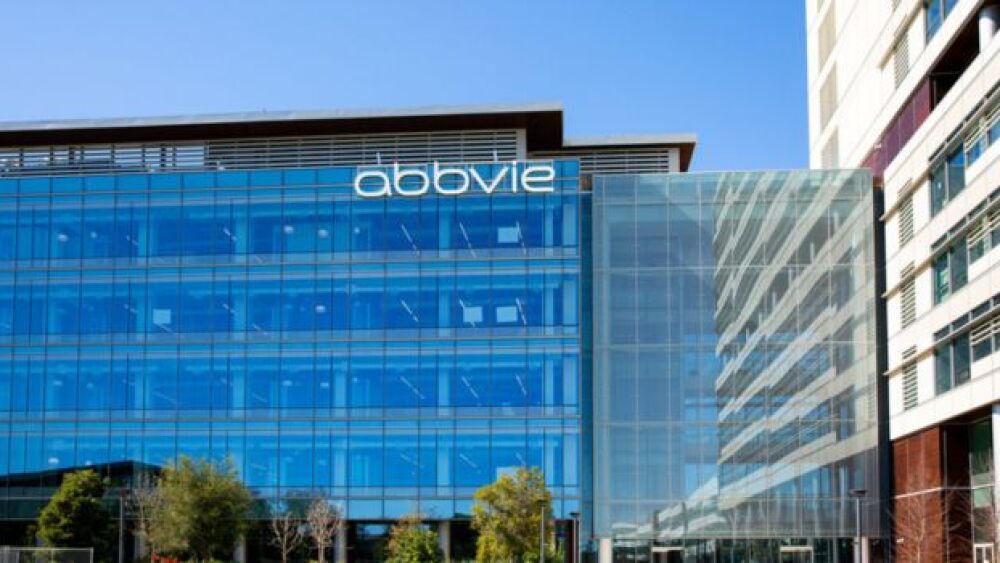The company’s investigational c-Met protein directed antibody-drug conjugate showed a “compelling” overall response rate in patients with previously treated non-small cell lung cancer.
Pictured: AbbVie building in California/iStock, vzphotos
AbbVie is looking to file for accelerated approval of telisotuzumab vedotin (Teliso-V) after reporting positive topline Phase II results for its investigational c-Met protein directed antibody-drug conjugate, which showed a “compelling” overall response rate in patients with previously treated non-small cell lung cancer.
The Phase II LUMINOSITY results announced on Wednesday were for patients with c-Met protein overexpression, epidermal growth factor receptor (EGFR) wild type and advanced metastatic nonsquamous non-small cell lung cancer (NSCLC). According to AbbVie, the data showed an overall response rate of 35% across c-Met high and 23% for c-Met intermediate patients, respectively.
Other endpoints included a median duration of response of nine months and a median overall survival of 14.6 months for c-Met High patients, 7.2 months for time of response, and 14.2 months for median overall survival in intermediate patients. AbbVie also said the safety profile has been “consistent with previous findings” with no new concerns.
“The results of the Phase II LUMINOSITY trial are encouraging for those patients with non-small cell lung cancer with c-Met overexpression as there is a critical need for better care and additional therapy options for them,” Ross Camidge, a principal investigator for the trial and director of thoracic oncology clinical and clinical research programs at the University of Colorado, said in a statement.
AbbVie will post the full details of the data at a future medical meeting. The company said it is talking to global health authorities about the potential for accelerated approval. The investigational first-in-class ADC already has a breakthrough designation from the FDA.
“Results from the Phase II LUMINOSITY trial mark an important step forward for AbbVie’s mission to advance new oncology treatments across our ADC program targeting solid tumor types with critical patient needs,” Roopal Thakkar, AbbVie’s CMO and senior vice president of development and regulatory affairs, said in a statement.
The ADC is being evaluated as a monotherapy in the Phase III TeliMET NSCLC-01 trial, which is enrolling patients with previously treated c-Met overexpressing EGFR wild type nonsquamous NSCLC across the U.S., Brazil, Europe and parts of Asia.
In related news, AbbVie on Thursday announced that it is buying ImmunoGen for $10.1 billion including its ADC Elahere for platinum-resistant ovarian cancer, which was granted FDA accelerated approval last year. ImmunoGen’s pipeline of next-generation ADCs complements AbbVie’s existing programs, according to the announcement. AbbVie is the latest big pharma to target the hot ADC market.
Tyler Patchen is a staff writer at BioSpace. You can reach him at tyler.patchen@biospace.com. Follow him on LinkedIn.






